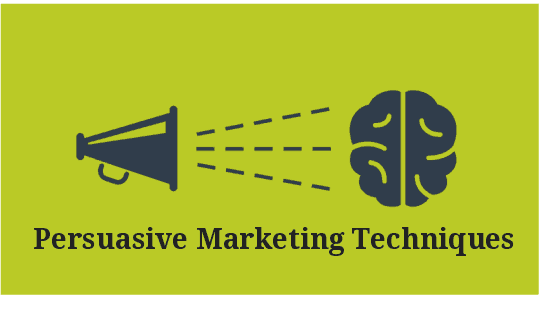In the competitive landscape of marketing, the ability to persuade consumers is paramount. Whether you're convincing them to buy a product, support a cause, or engage with your brand, mastering the art of persuasion is essential for success. Let's delve into some powerful techniques and strategies that can help marketers effectively persuade their audience and drive desired actions.
At the heart of persuasion in marketing lies understanding your audience. Before you can persuade someone, you need to know what motivates them, what concerns them, and what they value. Conduct thorough market research to gain insights into your target audience's demographics, preferences, and behaviours. Use this information to tailor your messaging and appeals to resonate with your audience on a deeper level.
One of the most fundamental principles of persuasion is building credibility and trust. Consumers are more likely to be persuaded by a brand they trust and perceive as credible. Establish your credibility by showcasing your expertise, credentials, and past successes. Use testimonials, case studies, and endorsements from satisfied customers to demonstrate social proof and build trust with your audience.
Emotional appeal is a powerful tool in persuasion. People make decisions based on emotions, so tapping into their feelings can be highly effective in marketing. Use storytelling to evoke emotions and create a connection with your audience. Craft narratives that resonate with their values, aspirations, and desires. Whether it's nostalgia, joy, fear, or empathy, emotional content can leave a lasting impression and drive action.
Another key aspect of persuasion in marketing is creating a sense of urgency. People are more likely to act when they feel a time pressure or fear of missing out. Use limited-time offers, flash sales, or countdown timers to create a sense of urgency and compel consumers to take immediate action. Highlighting scarcity, such as "limited stock available" or "selling fast," can also increase the perceived value of your offer and drive conversions.
Social proof is a powerful persuasion technique that leverages the influence of others. When people see that others like them are using and enjoying a product or service, they are more likely to follow suit. Use customer reviews, ratings, and user-generated content to showcase social proof and validate the value of your offering. Highlighting the number of satisfied customers or displaying endorsements from influencers can further reinforce social proof and persuade hesitant buyers.
The principle of reciprocity can be a persuasive force in marketing. When you give something of value to your audience, they are more likely to reciprocate by engaging with your brand or making a purchase. Offer free samples, trials, or valuable content such as eBooks, webinars, or guides to demonstrate goodwill and build rapport with your audience. By providing value upfront, you create a sense of obligation, making consumers more receptive to your marketing messages.
Consistency is another powerful persuasion principle. Once people make a small commitment or take a small action, they are more likely to follow through with larger commitments or actions that are consistent with their initial behaviour. Use this to your advantage by starting with small asks, such as signing up for a newsletter or following your social media accounts. Once people have made these initial commitments, they are more likely to engage further with your brand.
Finally, effective persuasion in marketing requires clear and compelling calls to action (CTAs). Clearly communicate what you want your audience to do next and make it easy for them to take that action. Use persuasive language and strong verbs in your CTAs, such as "Buy Now," "Learn More," or "Sign Up Today." Ensure that your CTAs stand out visually and are prominently displayed to capture attention and prompt action.
In conclusion, mastering the art of persuasion in marketing is essential for influencing consumer behaviour and driving desired outcomes. By understanding your audience, building credibility, tapping into emotions, creating urgency, leveraging social proof, offering value, and using clear calls to action, you can effectively persuade your audience and achieve your marketing objectives. Combine these techniques with creativity, authenticity, and empathy to create persuasive marketing campaigns that resonate with your audience and inspire action.


No comments:
Post a Comment